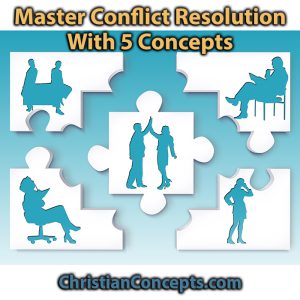Reading time: 3 minutes
What is Forgiveness Good For?
Forgiveness is the supernatural work of the Holy Spirit. It heals conflict within people, between people, and between people and God. Forgiveness removes bitterness, a cancerous blockage that infects and destroys people and relationships. Forgiveness and healing go together like chocolate and peanut butter.
Failure to forgive is often the main obstacle to moving forward in freedom. “Forgive” can be broken down into “give for”. God gives to us, we give to others, and others give to us.
What Forgiveness Is
- Being aware of what someone has done and still forgiving them (to cancel a debt you have to know the fullness of the damage)
- Choosing to keep no records of wrong (the debt has to die and not be resurrected later)
- Refusing to punish (punishing creates more hurt and usually can’t bring back what you lost)
- Relinquishing any debt (no longer expecting repaying)
- Not telling what they did (not gossiping)
- Being merciful (because God is merciful)
- Absence of bitterness (this only denies that God cares about you)
- Looking to God to make things right by bringing healing and making repayment as He sees fit
What Forgiveness is Not
- Approval of what was done to you (it is possible to cancel a debt and still see the truth of its wrongness)
- Excusing what they did (this only minimizes it)
- Justifying what they did (this only minimizes it)
- Pardoning what they did (this is a counterfeit because the hurt is not really confronted)
- Reconciliation of the relationship (forgiveness enables this, but does not guarantee it)
- Denying what they did (essentially the same as pardoning)
- Forgetting (it is possible to remember but not be bitter if you have truly experienced healing)
- Refusing to take the wrong seriously (this is minimizing it)
- Pretending you are not hurt (this is not honest)
Reflections on Forgiveness
He who cannot forgive another breaks the bridge over which he must pass himself.
– George Herbert
To be a Christian means to forgive the inexcusable, because God has forgiven the inexcusable in you.
– C.S. Lewis
Everyone thinks of changing the world, but no one thinks of changing himself.
– Leo Tolstoy
The most powerful agent of growth and transformation is something much more basic than any technique: a change of heart.
– John Welwood
When you blame others, you give up your power to change.
– Dr. Robert Anthony
Nothing is easy to the unwilling.
– Thomas Fuller
Resources on Forgiveness
Book – Total Forgiveness by R.T. Kendall
– provides a comprehensive explanation of what forgiveness is and what it is not
Book – What’s So Amazing About Grace by Phillip Yancy
– provides a compelling case for no strings attached forgiveness
Prayer
Heavenly Father, I choose as an act of my will to forgive [person]. I forgive [person] for [list of specific offenses]. I release [person]. I ask you to forgive [person] for all these things as well and that you do not hold these things against [person] on my account.
Heavenly Father, I ask you to forgive me for holding unforgiveness, bitterness, resentment, etc., in my heart towards [person]. I receive your forgiveness and cleansing of my heart from all unrighteousness.
Heavenly Father, forgive me for holding resentment towards you and for allowing these hurts to happen to me. If I have any more negative feelings stored up in me towards [person], I ask you to cleanse them from me now. I open myself to replace these negative emotions with the fruit of your Spirit (love, joy, peace, patience…)
Heavenly Father, I ask you now to heal the wounded places in my soul. Heal every memory of those offenses so I can look back on them, realistically accepting they were hurtful, and trusting you have healed the hurt. Enable me to use this experience to help others with whom I come into contact.
Heavenly Father, bless [person] with your abundant mercy. Prosper [person] in every way. In the name of Jesus. Amen.






